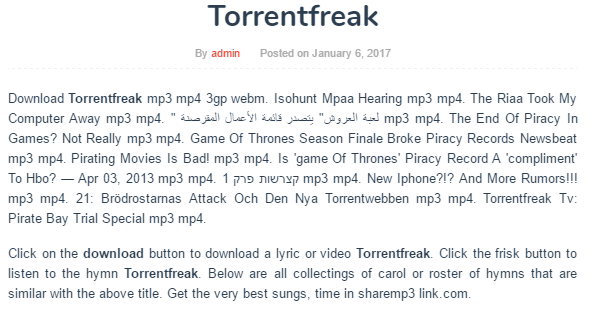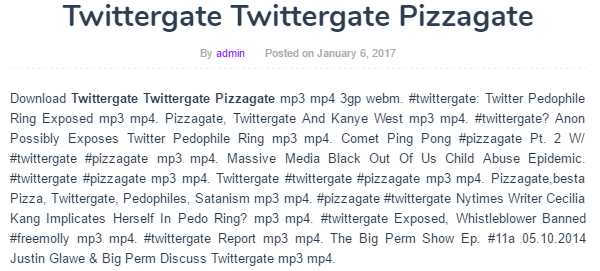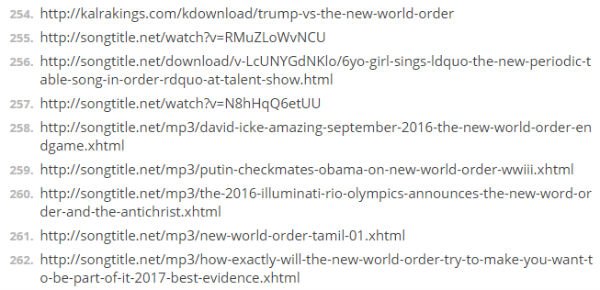 While Popcorn Time was the hot news of 2014 and 2015, 2016 was taken by storm by an old kid on the block with a new lick of paint.
While Popcorn Time was the hot news of 2014 and 2015, 2016 was taken by storm by an old kid on the block with a new lick of paint.
For TF readers, Kodi needs little introduction. It’s an open source media player that can, given select tweaks, be augmented with third-party addons that grant access to an Aladdin’s cave of pirate content.
Unlike most other kinds of unauthorized online sharing, the way content is delivered through Kodi has exposed a whole new legal gray area. While it’s definitely illegal in Europe and the US to share copyrighted content without permission using BitTorrent, no one is really clear whether streaming content via Kodi has the same status.
In recent weeks, this has led to the publication of dozens of articles which claim to answer that question. Upon review, none of them actually do, so the topic remains hot in the UK.
To that end, BBC Radio Five ran a pretty long feature this morning which had host Adrian Chiles discussing the topic with FACT chief Kieron Sharp, intellectual property lawyer Steve (whose surname wasn’t clear from the broadcast) and technical guy Tom Cheesewright who really knew what he was talking about.
The start of the interview was marked by Chiles noting that when he found out what a Kodi device could do, he immediately wanted one.
“I’d never heard of them,” he said. “I heard what they were and then I wanted one. And then someone told me that they’re probably illegal, so I better not get one.”
Chiles’ reaction is probably held in common with millions of others who’ve learned about what Kodi devices can do. There’s a clear and totally understandable attraction, and it was helpful for the broadcaster to acknowledge that.
After a brief technological description from Cheesewright, Chiles turned to IP lawyer Steve, who was asked where the law stands. His response was fairly lengthy but clearly focused on the people supplying the devices.
“You’ve got big content producers like HBO that are used to producing premium content that people pay for,” Steve said.
“Where they are directing their attention is on the people who sell these boxes loaded with software that lets you get around paying a subscription.”
The lawyer acknowledged that there are some ongoing cases in the UK which involve suppliers of devices which effectively allow users to get around copyright protection.
“That’s been the focus of the strategy and it’s a big, big, big issue,” he said.
But for those who know Chiles’ down-to-earth style, it was always obvious that he would want to know how the law views the man in the street.
“From the punter’s point of view, if you’re watching something made by HBO that Netflix would hope that you’d be paying them to watch, but you’re watching it for free via your Kodi stick, then are you going to get a knock on the door?” Chiles asked.
Chiles didn’t get a straight answer about the law, but after a breath, Steve offered the reality.
“In all likelihood, no,” the lawyer responded.
Noting that there have been cases against file-sharers, the IP expert said that there is a difference – a legal gray area – when it comes to streaming versus file-sharing.
“What tends to happen is that the content providers go after the ISPs, they go after platforms [offering pirate content], not the individual people,” he said, adding that getting a knock on the door at home would be fairly unlikely.
Interestingly, Chiles’ then admitted that in the past he also tried to get Premier League football on his laptop for free, but was unsuccessful in getting any content. The suggestion was that Chiles’ failure could be put down to anti-piracy crackdowns against sites, including site-blocking, a point on which the lawyer agreed.
“[Rightsholders] have been choking off access [to free content] rather than going to war with their own fans, which is never going to be good for publicity, which is only going to cause them a bigger problem,” the lawyer said.
At this point, FACT chief Keiron Sharp entered the conversation and immediately acknowledged that piracy is an ongoing problem that isn’t going to be solved overnight. However, he also revealed a little about their Kodi strategy.
“This will still keep coming up no matter which actions we take, but there is still a deterrent effect on people when they see that sellers and providers and distributors of these boxes are going to prison. Which they will do,” Sharp said.
The FACT chief said that people will make a connection between people being locked up for selling boxes and the use of these boxes at home, something which he hopes will result in less uptake.
“There will be a deterrent effect [from cases going through the court now] and I think your average punter, as you put it, are the ones who will see that deterrent effect and we will be able to move some people away,” he said.
Interestingly, Sharp then referred to pirates as “fans” who want access to a product and that content providers were trying to fulfill that demand. Lawyer Steve, who also used the word “fans,” added that people who pirate aren’t necessarily cheapskates either.
“The biggest problem the industry has is that it’s always been behind on design and user experience,” he said.
“People buy these boxes not necessarily because they’re cheapskates or want to break the law, but probably because it’s the only place they can get access to all the content they want in one place, in a good user experience, without buying separate subscriptions for Sky, for Netflix, for Amazon, for Hulu, for all of these different services,” he said.
This conclusion is an important one. While at some point the courts may decide (there’s a case in Europe) that knowingly watching pirate streams is indeed illegal, there is no way that a user that ONLY STREAMS content can be monitored by groups that would like to prosecute them.
So, to answer the million dollar question. Watching pirate Kodi streams may be deemed illegal sometime in the future but right now, no one is 100% sure. In any event, it’s impossible in any sensible scenario for anyone to get caught doing so.
With that in mind, content providers need to keep upping their game, or the Kodi content free-for-all (or whatever else comes along next) will continue.
A replay of the show might be made available by the BBC on the iPlayer at a later point.
Source: TF, for the latest info on copyright, file-sharing, torrent sites and ANONYMOUS VPN services.

 Pirate sites come in all shapes and sizes, ranging from torrent indexes, through streaming portals, to MP3 download sites.
Pirate sites come in all shapes and sizes, ranging from torrent indexes, through streaming portals, to MP3 download sites. 



 For more than half a decade so-called “copyright trolling” cases have been keeping the U.S. judicial system busy.
For more than half a decade so-called “copyright trolling” cases have been keeping the U.S. judicial system busy.
 Last year, Paramount Pictures and CBS Studios
Last year, Paramount Pictures and CBS Studios